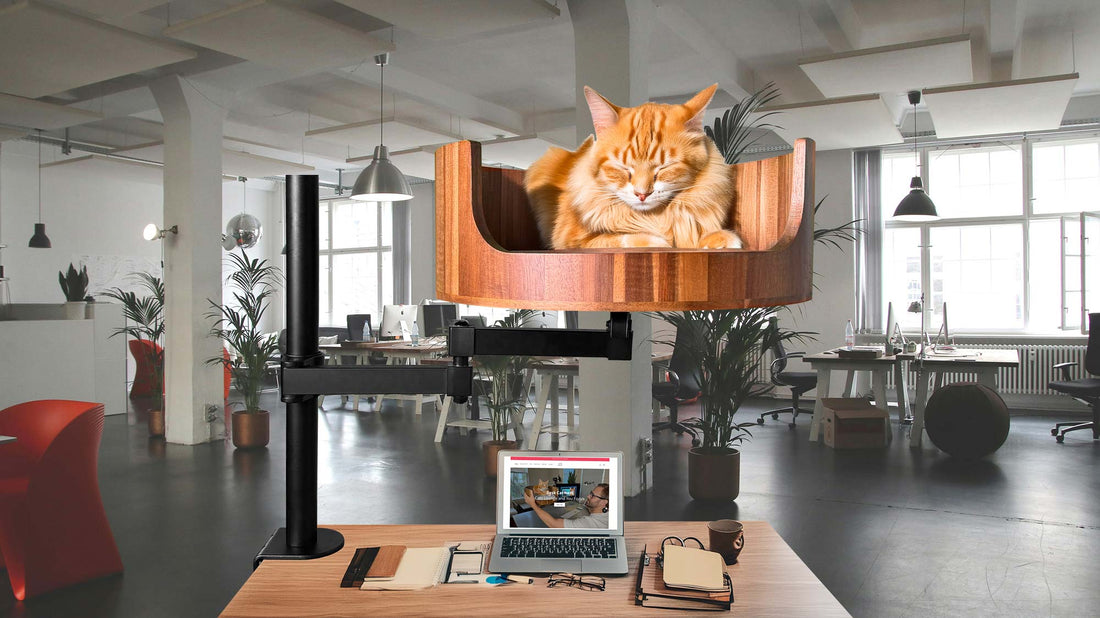
Why Does My Cat Drool? Understanding Feline Salivation
Share
If you've ever noticed your feline friend leaving little droplets of saliva wherever they go, you may be wondering: why does my cat drool? While some cat owners may think drooling is simply a sign of contentment or a messy eater, there are actually a variety of reasons why cats drool. Understanding feline salivation can provide valuable insights into your cat's health and behavior, so let's dive into the world of cat drool.
In this article, we will explore the common causes of drooling in cats, including dental issues, medical conditions, and behavioral factors. We will also discuss how to differentiate between normal drooling and excessive drooling that may require veterinary attention. Whether your cat is a chronic drooler or just occasionally leaves a wet spot on your lap, knowing the reasons behind their drooling behavior can help you provide the best care for your furry companion. So, grab a cup of coffee, settle in with your purring pal, and let's unravel the mysteries of feline salivation together.
1. Drooling in cats can be caused by a variety of factors, including excitement, anxiety, dental issues, or even a sign of a more serious medical condition.
2. Some breeds of cats, such as Persians or Siamese, are more prone to drooling than others due to their genetics.
3. It is important to monitor your cat's drooling habits and consult with a veterinarian if you notice any sudden or excessive drooling.
4. Regular dental check-ups and cleanings can help prevent dental issues that may cause drooling in cats.
5. Understanding the reasons behind your cat's drooling can help ensure their overall health and well-being.
Causes of Excessive Drooling in Cats
Excessive drooling in cats can be caused by a variety of factors, including dental issues such as tooth decay, gum disease, or mouth sores. In some cases, drooling can also be a sign of underlying health problems such as kidney disease, liver disease, or respiratory infections. Additionally, certain medications or toxins can lead to increased salivation in cats. It is important to consult with a veterinarian if your cat is drooling excessively to determine the underlying cause and appropriate treatment.
Behavioral Reasons for Drooling in Cats
Some cats may drool as a result of stress, anxiety, or excitement. For example, a cat experiencing separation anxiety may drool when their owner leaves the house, while a cat that is overly excited during playtime may also drool. Other behavioral factors such as overstimulation or fear can also trigger drooling in cats. Understanding your cat's behavior and providing a calm and safe environment can help reduce excessive drooling caused by these factors.
Treatments for Cat Drooling
The treatment for cat drooling depends on the underlying cause. If dental issues are the culprit, a thorough dental cleaning or extraction of diseased teeth may be necessary. For health-related causes, such as kidney disease or respiratory infections, your veterinarian will prescribe appropriate medications to treat the condition. In cases where drooling is due to behavioral factors, such as stress or anxiety, behavior modification techniques, environmental enrichment, or calming pheromones may be helpful in reducing drooling episodes in cats. Always consult with your veterinarian for proper diagnosis and treatment of your cat's drooling issue.
Frequently Asked Questions
Why does my cat drool?
Drooling in cats can be caused by a variety of factors, including excitement, stress, dental issues, or a medical condition. It is important to observe your cat's behavior and consult with your veterinarian if you have concerns about excessive drooling.
Can the Desk Cat Nest help with my cat's drooling?
The Desk Cat Nest is designed to provide a comfortable and secure space for your cat to rest and relax. While it may not directly address the underlying cause of your cat's drooling, creating a stress-free environment with the Desk Cat Nest can help improve your cat's overall well-being.
Is drooling in cats a sign of a serious health issue?
In some cases, excessive drooling in cats can be a sign of a serious health issue, such as dental disease or oral tumors. If you notice any changes in your cat's drooling habits, it is best to consult with your veterinarian for a proper diagnosis and treatment plan.
How can I prevent my cat from drooling?
Preventing drooling in cats involves regular dental care, providing a balanced diet, managing stress levels, and maintaining overall health through regular check-ups with your veterinarian. Additionally, keeping your cat's living environment comfortable and stress-free can help reduce excessive drooling.
In conclusion, the Desk Cat Bed is a valuable choice for cat owners seeking to address the issue of excessive feline drooling. By providing a comfortable and soothing space for your cat to rest and relax, the Desk Cat Bed can help reduce stress and anxiety, which are common causes of drooling in cats. Additionally, the raised design of the bed can help improve air circulation around your cat's head, potentially preventing drooling caused by overheating. With its soft and cozy material, the Desk Cat Bed offers a luxurious sleeping experience for your feline friend, making it a beneficial investment for both you and your cat. Say goodbye to messy drooling episodes and say hello to a happier and healthier cat with the Desk Cat Bed.



















































